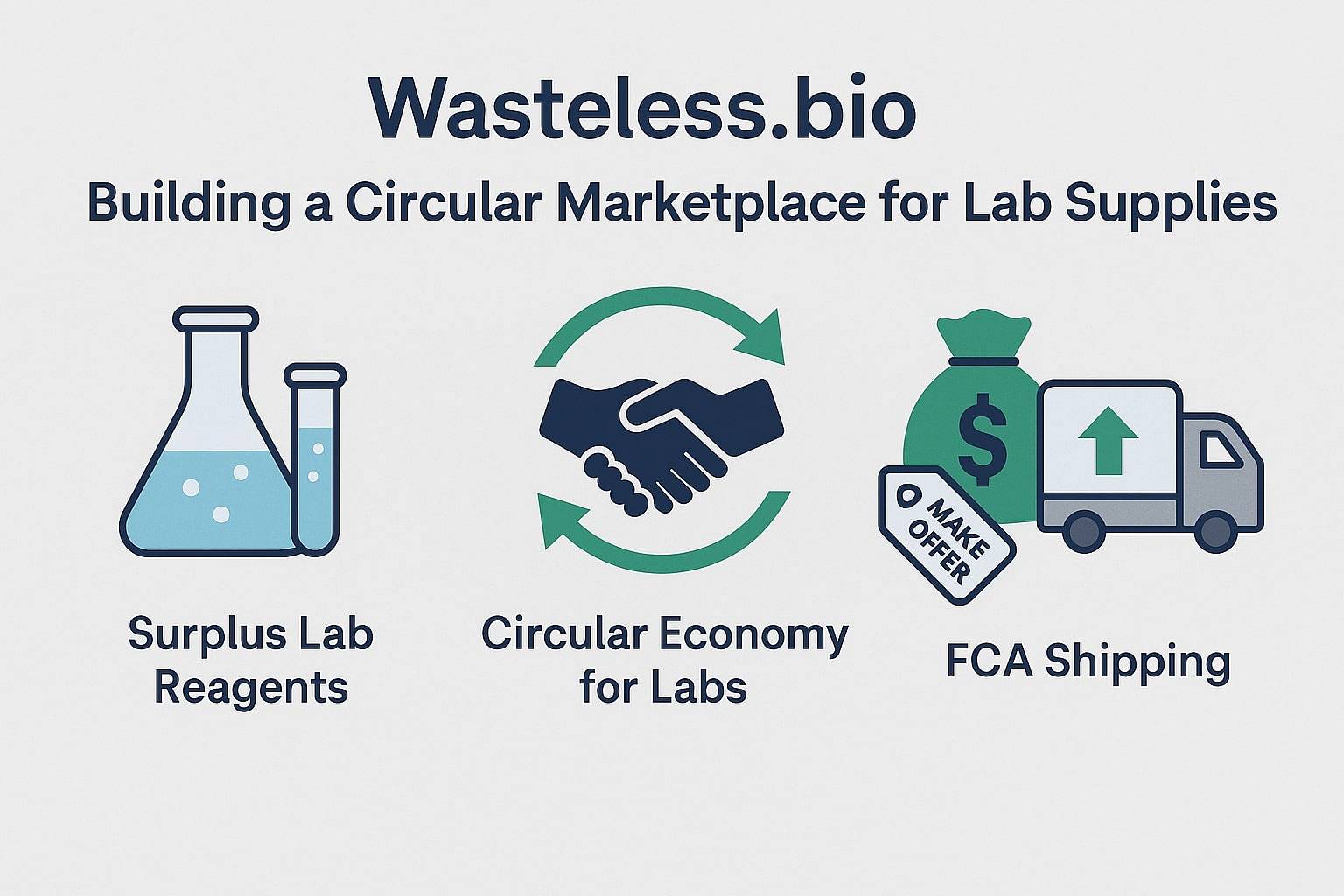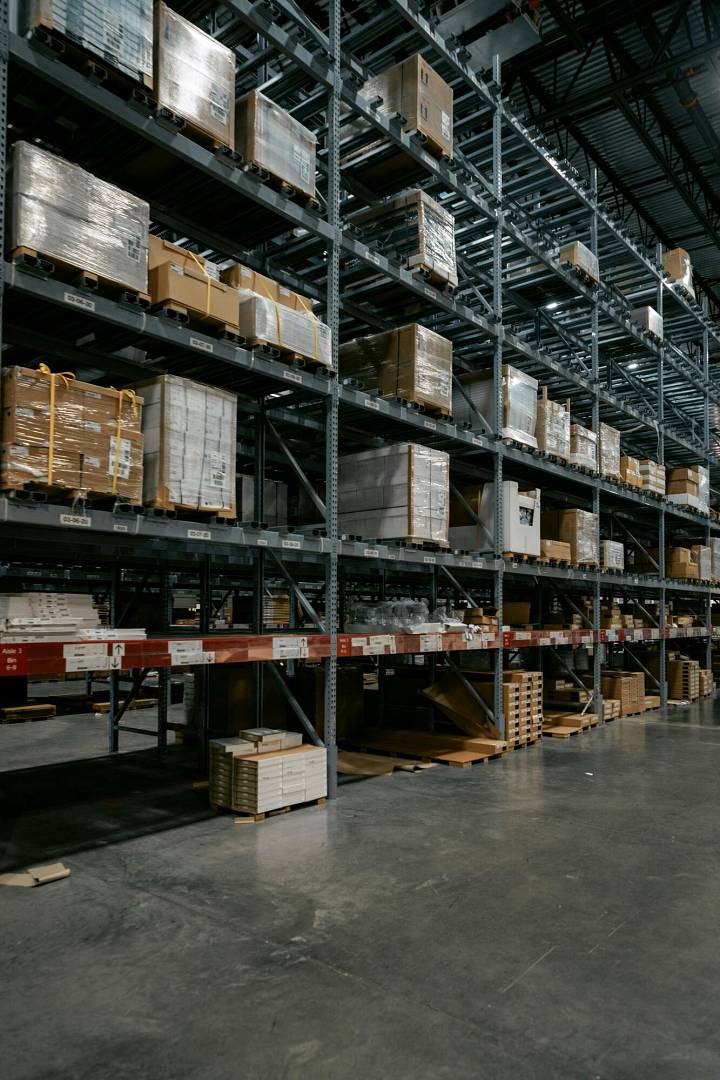The scientific research ecosystem is often resource-intensive. Laboratories buy large volumes of reagents, consumables, and instruments, but not all of them get used. Sometimes a project ends early, or a startup closes down, leaving valuable items to expire on the shelf.
Wasteless.bio emerged as a platform to tackle this challenge—helping labs redistribute surplus stock while supporting affordability and sustainability.
Why Wasteless.bio Exists
Scientific progress depends on access to high-quality materials, but the current supply chain often leads to waste. Estimates suggest that 10–20% of lab consumables go unused. In the biotech sector, where many startups close within a few years, entire storerooms of reagents and instruments may become surplus biotech inventory.
Instead of sending these items to disposal, Wasteless.bio enables redistribution. This unused consumables marketplace helps sellers recover some value while offering buyers access to affordable and reliable supplies.
How the Marketplace Works
For Buyers
-
Search listings for reagents, consumables, or discounted lab instruments.
-
Purchase directly with Buy Now or negotiate through the Make an Offer feature.
-
Review product details carefully, including expiry dates, storage conditions, and Certificates of Analysis.
-
Finalize shipping under FCA terms, where sellers arrange dispatch but buyers take responsibility for international shipping and customs.
For Sellers
-
Register and go through a vetting process to ensure product quality.
-
Upload inventory using platform templates or ERP exports.
-
Set pricing options, including fixed prices or offers.
-
Ship items with appropriate packaging and documentation, especially for short-expiry lab supplies.
This system creates a balanced flow where both parties save—buyers reduce costs, sellers free up space and recover value.
Logistics and FCA Shipping
Moving lab materials across borders requires strict attention to detail. Wasteless.bio adopts FCA shipping for lab equipment, meaning sellers deliver goods to a chosen carrier and clear export customs, while buyers manage import duties and onward transport.
This arrangement keeps the platform flexible but also requires buyers to budget for potential customs fees. For sensitive reagents, sellers must follow temperature-controlled packaging standards (dry ice, gel packs) and provide supporting documents such as Material Safety Data Sheets.
Sustainability and the Circular Economy for Labs
The scientific community is increasingly aware of its environmental impact. Labs are energy-intensive, and procurement cycles generate significant carbon emissions. Wasteless.bio contributes by embedding a circular economy for labs into procurement practices.
Instead of manufacturing and shipping brand-new goods, redistributing surplus stock avoids waste and reduces the need for additional production. The platform also supports Scope 3 emissions reporting, offering laboratories data they can include in sustainability metrics. This fits into broader laboratory sustainability solutions, where waste reduction and efficient use of resources are key goals.
Strengths of the Platform
-
Affordability – Short-expiry lab supplies and surplus stock are sold at discounts that average around 70%, and sometimes items are even offered for free.
-
Flexibility – The ability to negotiate through Make an Offer lab products adds flexibility for both buyers and sellers.
-
Sustainability – By reducing waste, the platform provides a tangible example of laboratory sustainability solutions in action.
-
Accessibility – Universities, startups, and research institutions can all benefit, especially those with limited procurement budgets.
Limitations to Keep in Mind
-
Buyer responsibilities: Under FCA terms, buyers must manage shipping costs and import duties, which can vary by country.
-
Refunds: Refunds are only possible if products differ materially from their listing, so careful review is essential before purchase.
-
Variable listings: Like many marketplaces, the quality and availability of products depend on what sellers upload.
Practical Tips for Users
-
When buying, check expiry dates and batch documentation to ensure items align with your experimental timelines.
-
Bundle orders to reduce shipping costs, particularly for refrigerated or hazardous items.
-
For sellers, surplus biotech inventory can be monetized quickly if listed with clear expiry details, storage history, and product certificates.
Wasteless.bio vs. Traditional Procurement
Traditional suppliers focus on brand-new products, often with long lead times and high costs. Wasteless.bio complements this model by offering an alternative channel for surplus materials. While it won’t replace standard procurement for critical, long-term experiments, it is ideal for labs looking to stretch budgets, run pilot projects, or test methods without investing in large fresh stock.
FAQs
1. Can expired materials be sold?
Yes. Expired or short-expiry items can be listed, provided they are unused and stored correctly.
2. Is it really free to list?
Yes, listing is free. The platform only charges a 20% commission when an item sells.
3. Who manages shipping?
Sellers arrange delivery to a carrier under FCA terms, while buyers handle import customs and shipping beyond that point.
4. Are discounted lab instruments reliable?
Yes, instruments can be sold second-hand, and buyers should review photos, condition notes, and any attached documentation before purchase.
5. Does this help with sustainability reporting?
Yes. Wasteless.bio provides data that supports Scope 3 emissions reporting, useful for organizations tracking environmental performance.
Conclusion
Wasteless.bio is not just a cost-saving tool—it’s a step toward embedding a circular economy for labs. By redistributing surplus lab reagents, short-expiry lab supplies, and even discounted lab instruments, it turns idle stock into active resources. The model reduces waste, supports affordability, and contributes to laboratory sustainability solutions.
While buyers must take on responsibility for shipping and import under FCA terms, the benefits—lower costs, reduced emissions, and stronger resource efficiency—make this unused consumables marketplace an innovative addition to the life sciences ecosystem.















